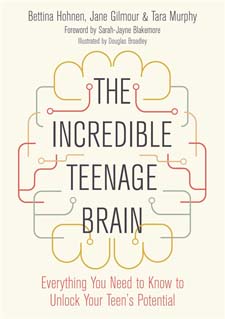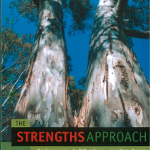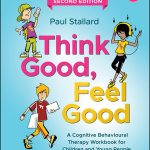Written by a team of leading clinical psychologists, this straightforward book walks the reader through the workings of the teenage brain. Pulling together the latest research, from brain imaging techniques to studies of teen behaviour, the authors provide an invaluable framework for parents, teachers and professionals to understand how teenagers learn.
Uniquely, the authors provide a manual with clear strategies for what to do to support teens based on findings from neuroscience and psychology. They show that good relationships and communication are the bedrocks of supporting teens to develop, learn and grow. They also highlight the importance of individual and learning differences, mental health, and a growth mindset, as part of the over-arching theoretical framework of the book. A must read for anyone supporting young people.
Contents:
- Foreword;
- Introduction;
- Section 1: The Incredible Teen Brain;
- 1. Upgrade: the incredible teenage brain;
- 2. The brain thinks and feels;
- 3. The brain learns and believes;
- 4. The brain connects, watches and absorbs;
- 5. The brain loves other people;
- Section 2: Teens facing additional challenges;
- 6. Teen mental health: When teen brains can become overwhelmed;
- 7. Neurodiverse teen brains – teenagers with a learning difference;
- Section 3: The developmental priorities, or ‘tasks’ of a teenager;
- 8. Social factors and natural attractors;
- 9. Teens’ Risk taking Sets them Up for Adult Lifeand – and builds important brain circuitry;
- 10. The power of feelings and motivation;
- 11. Who Am I? the teenage search for identity;
- 12. Ready to launch (with your help);
- Section 4: The importance of cCare and self-care for the developing teenage brain;
- 13. Sleepy teens;
- 14. Energy in, energy out – creating healthy habits in the teen brain;
- 15. Good stress, bad stress;
- 16. #Social media and technology;
- Section 5: May The Force Be With You, Luke;
- 17. The Last Word
Author Bio:
Bettina Hohnen, Jane Gilmour and Tara Murphy are clinical psychologists who have a specialist interest in neuropsychology and all based at or have worked at Great Ormond Street Hospital and University College London. All have academic backgrounds and over 20 years’ experience working with children, young people and families, and delivering training to parents and professionals.
Review:
“This book is full of practical advice for parents of teenagers. It uses up-to-date understanding of how the brain works to give sensible, useful guides on how to handle adolescents. It reflects a new revolution in our understanding of how relationships can affect brain structure, and gives sensible advice on how to optimise children and young people’s development so they are set up with healthy brains for the rest of their lives” – Stephen Scott CBE FRCPsych FMedSci Professor of Child Health and Behaviour, Kings’s College London, Consultant Child and Adolescent Psychiatrist at Maudsley Hospital
“An exciting book. It unravels the complexities of teenage thoughts, stresses and behaviour patterns and shows adults how to respond in a positive and uplifting way. This builds up self-belief, happiness and ambition. I wish this had been around when my children were teenagers!” -Diana Hudson, author of Specific Learning Difficulties What Teachers Need to Know, secondary school teacher and mother to four adult children
“Such a useful and reassuring book for parents, carers and anyone working with young people. The authors dismiss the stereotype of the ‘troublemaker teen’ and spell out with great clarity how we can all help our teenagers to flourish. They explain why teens are at the height of their learning potential in all areas of life and show us how, by choosing our words carefully and making shifts in our own behaviour, we can help them shine” – Margaret Rooke, author ‘You can Change the World. Everyday Teen Heroes Making a Difference Everywhere’ and ‘Dyslexia is my Superpower (Most of the Time)’






